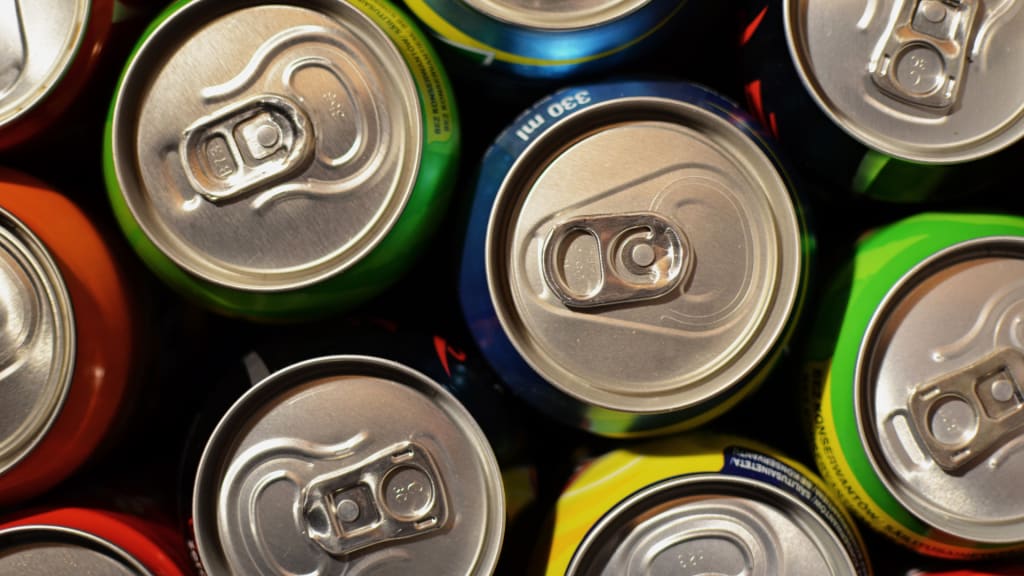Aspartame's Uncertain Impact: Limited Evidence of Carcinogenicity in Humans
Unpacking the Science

There is "restricted evidence" for carcinogenicity in people, from non-sugar aspartame, said an assessment of its health impact report released by the International Agency for Research on Cancer (IARC) and the World Health Organization (WHO) and the Food and Agriculture Organization (FAO) Joint Expert Committee on Food Additives (JECFA).
In the report released, IARC classified aspartame as possibly carcinogenic to people (IARC Group 2B) and JECFA reaffirmed the adequate daily intake of 40 mg/kg body weight.
IARC classified aspartame as possibly carcinogenic to people (Group 2B) based on restricted proof for cancer in people (explicitly, for hepatocellular carcinoma, which is a sort of liver cancer).
JECFA concluded that the information evaluated indicated no sufficient reason to change the previously established acceptable daily intake (ADI) of 0-40 mg/kg body weight for aspartame. The committee, hence, reaffirmed that it is safe for an individual to consume within this limit per day.
For instance, with a can of diet soft drink containing 200 or 300 mg of aspartame, an adult weighing 70kg would have to consume more than 9-14 cans per day to exceed the acceptable daily intake, assuming no other intake from other food sources.
IARC and WHO are to keep on observing new evidence and urge independent studies groups to develop further studies on the potential relationship between aspartame openness and consumer health impacts.
In its official release WHO noted that cancer is one of the main causes of death all around the world. Every year, 1 out of 6 individuals die from cancer."Science is consistently growing to survey the possible initiating or facilitating factors of cancer, in the hope of reducing these numbers and the human toll," said Dr. Francesco Branca, Director of the Department of Nutrition and Food Safety, WHO.
"The evaluations of aspartame have shown that, while safety is not a main concern at the doses which are regularly used, potential impacts have been described that should be examined by more and better studies," he added.
The two bodies conducted independent but complementary reviews to assess the potential carcinogenic hazard and other health risks related to aspartame consumption. This was the first time that IARC has assessed aspartame and the third time for JECFA.
After reviewing the accessible scientific literature, the two assessments noted limitations in the available proof for cancer (and other health impacts).
IARC's hazard identifications are the primary principal step toward understanding the carcinogenic nature of a specialist by recognizing its particular properties and its capability to cause harm, for example, cancer.
IARC orders reflect the strength of scientific evidence as to whether an agent can cause malignant growth in people, however, they don't reflect the risk of developing cancer in humans. The IARC hazard assessment considers a wide range of exposure (for example dietary, and occupational). The strength-of-evidence arrangement in Group 2B is the third most elevated level out of 4 levels, and it is by and large utilized either when there is restricted, yet not persuading, proof for cancer in people or convincing proof for cancer in experimental animals, but not both.
"The discoveries of restricted proof of carcinogenicity in humans and animals, and of limited mechanistic proof on how carcinogenicity might happen, highlight the need for more research to refine our understanding on whether consumption of aspartame represents a carcinogenic hazard," said Dr. Mary Schubauer-Berigan of the IARC Monographs Programme.
JECFA's risk evaluations decide the likelihood of a particular sort of harm, for example, cancer, to happen under specific circumstances and levels of exposure. It is actually to be expected for JECFA to consider IARC classifications in its deliberations.
"JECFA additionally viewed as the proof on cancer risk, in animals and human studies, and concluded that the proof of a relationship between aspartame consumption and cancer in people isn't convincing," said Dr Moez Sanaa, WHO’s Head of the Standards and Scientific Advice on Food and Nutrition Unit. "We need better studies with longer development and rehashed dietary questionnaires in existing partners. We need randomized controlled trials, including investigations of mechanistic pathways applicable to insulin regulation, metabolic syndrome, and diabetes, especially as connected with carcinogenicity."
The IARC and JECFA assessments of the effect of aspartame depended on scientific information gathered from a range of sources, including peer-reviewed papers, legislative reports, and studies led for regulatory purposes. The studies have been inspected by independent specialists, and the two committees have taken steps to guarantee the independence and dependability of their assessments.
About the Creator
shanmuga priya
I am passionate about writing.






Comments (1)
I love Coke Zero but I'm worried about this